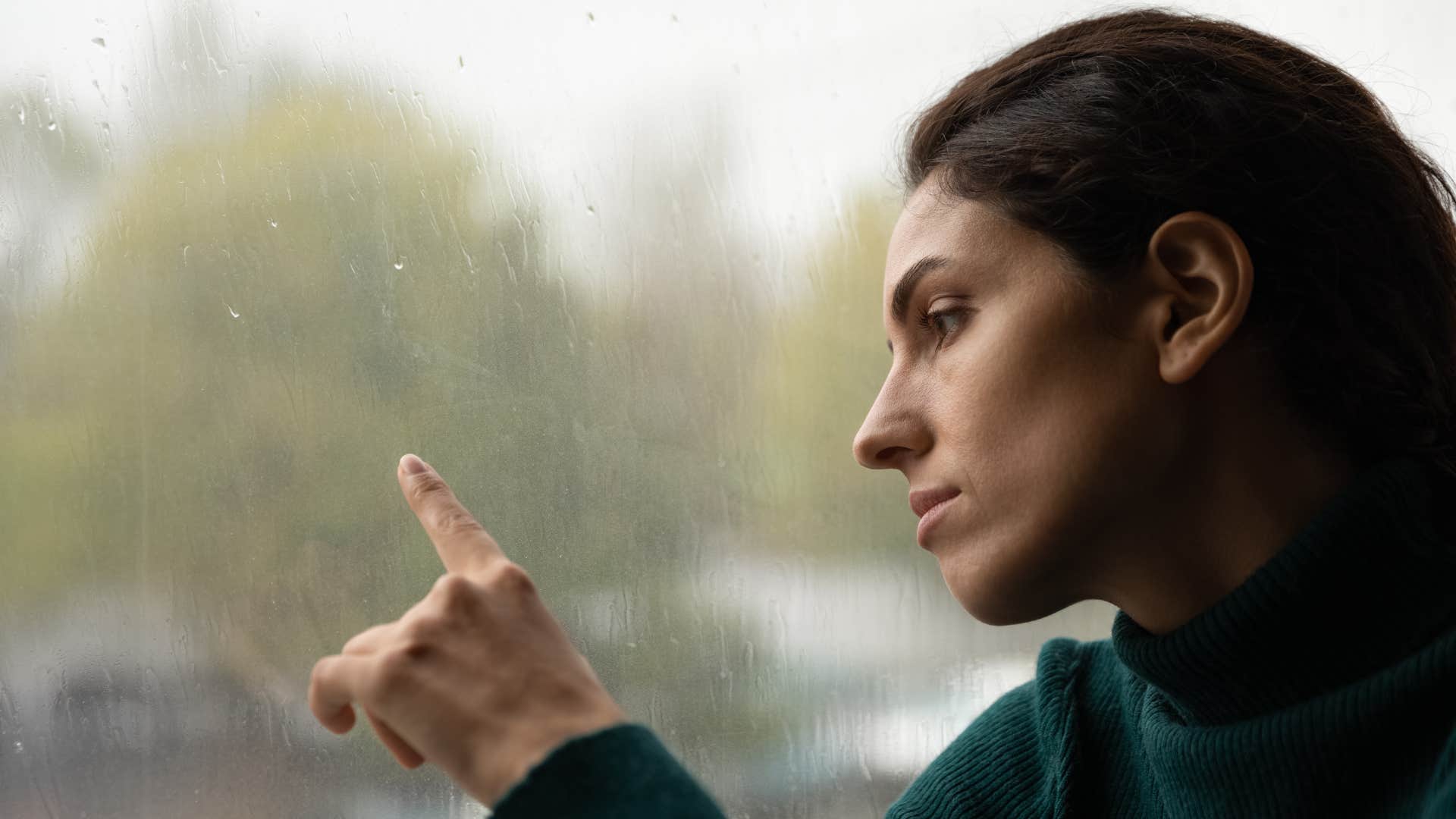The Art Of Getting Over A Break-Up: 6 Simple Habits Of Naturally Resilient People
Ease the pain and fill the void from a breakup to create a more fulfilling life.
 Mert Coşkun | Pexels
Mert Coşkun | Pexels Imagine the person you love the most, and now imagine ending your relationship with them forever. Doesn’t that feel like someone is ripping off your right arm or squeezing your heart out?
Learning how to be naturally resilient and get over a breakup can be really dramatic and traumatic. Whether the relationship ends on good terms or with a fight, or whether it was a one-sided breakup or one you both mutually agreed upon, it still doesn't hurt any less. The crisis, the stress, the emotional roller coaster — it's all challenging — but there are resilient ways to master the art of the break-up, see through the fog, and eventually land in sunshine.
The art of getting over a break-up: 6 simple habits of naturally resilient people:
1. They don't take the break-up personally
 fizkes via Shutterstock
fizkes via Shutterstock
It sounds like an oxymoron. How can a breakup not be personal? Yes, it is very much personal, but the truth is that it also is not. Every individual has different needs and wants from a partner.
We're all rejected at some time. That doesn't mean we aren’t good enough. Our time will come, and we will find our match. We cannot give to others what we don’t have, and similarly, we cannot get from others what they don't have.
Yes, our ego gets hurt, and our ego makes it personal, but the fact is, there are many reasons for any breakup. It could be the timing was wrong, you weren't compatible, one of you wasn't ready, the chemistry was off, and so on. It's important not to blame yourself or your ex for the breakup and focus on the new possibilities this breakup provides.
A study of emotional recovery following nonmarital relationship dissolution found that acceptance of relationship termination and sadness recovery depend on a person's levels of attachment security, love, and anger.
2. They spend time with loved ones
 Chay_Tee via Shutterstock
Chay_Tee via Shutterstock
Everyone can benefit from the way social and emotional support provides an alternate perspective on the breakup. A strong support system speeds up the healing process by motivating one to move forward and rediscover self-worth. Surround yourself with an environment that is conducive to your well-being by accepting support and empathy from friends and family.
When your romantic relationship is over, you may not feel motivated to be proactive and engaged. Push yourself and look around with your eyes wide open because people are there to care for you and offer you their shoulder to cry on. At times, your family might get extremely overprotective of you, so be wise in selecting the environment that is best for you.
3. They keep busy
 DC Studio via Shutterstock
DC Studio via Shutterstock
Instead of shutting the world out, look for activities that will help you recover more quickly. This can include working out in the gym, joining a book club, or building new friendships. When your pain takes the shape of anger, physical activity is the best way to let go of that edge. You will also feel less depressed when you keep moving.
Another way you can gain peace is through volunteer work. When you heal others, something inside of you also starts to heal. When you meet people who are less fortunate than yourself, you start to see your pain as less significant and become better able to come out on the other side feeling empowered.
However, as research on the mental health costs and benefits of giving social support warned, "Social support helps recipients cope with stress and distress, but it may also affect people who give it, with consequences depending on the type of support given."
4. They search for passion and purpose in life
 PeopleImages.com - Yuri A via Shutterstock
PeopleImages.com - Yuri A via Shutterstock
After a loss or a breakup, it is natural to feel lost, especially if that individual was a big part of your life. People tend to lose their sense of passion and purpose in life when they feel hopeless and pessimistic. In such situations, having the optimism and courage to push yourself is especially important.
To transform the negative energy taking root in you into something positive and useful, try new things, explore them, and find out more about the activities or yourself. In this way, you regain control over your life, rather than being passive and feeling bad about yourself. As Marilyn Monroe said, “Sometimes things fall apart so that better things can fall together.”
5. They resist running away from the pain
 Stayman via Shutrerstock
Stayman via Shutrerstock
There is no healing without grieving. You cannot expect the pain to go away if you never acknowledge it. Let yourself feel the loss and the pain, and express those feelings. Write it on paper. Cry it out. Talk to a therapist or a friend. Pray. Anything that involves getting it off your chest is worth it.
A brain neuroimaging study found that the "brain areas that are activated during the distress caused by social exclusion are also those activated during physical pain." This is an "explanation for the feeling of physical pain that accompanies emotional loss, whether that be the loss of a loved one, rejection by one's social group, or the distress of separation."
People tend to put up walls and turn to unhealthy ways to deal with all these overwhelming emotions. These include rebound relationships, dependency, and self-harm. They transform their pain into anger, misery and express it in destructive ways. You need to believe you are strong and can face the pain with courage and a positive attitude.
6. They give themselves a break
 Roman Samborskyi via Shutterstock
Roman Samborskyi via Shutterstock
Let the healing come naturally. This is the only way to accept and let go of these feelings. A breakup can feel similar to death. It may not be the death of a person, but it is the death of a relationship. It's not up to you to decide how long you will grieve. Grief decides for itself. Stop trying to take control and let the recovery take place naturally.
You find your self-worth and ego confronted, especially when you believed you had true love and passion in your life, and now it's gone forever. A study of bereavement and breakup in marriage showed that "both types of marital disruption were strongly linked to loneliness, from where different relations emerged to other depressive symptoms."
It takes a good amount of time to wrap your head around the reality that you're single now, and even more time for the hurt to fade away. Every day, you struggle to fight back the happy memories and face the reasons things ended. No matter how depressed or lonely you feel, you never forget the cause of the breakup.
There will be times you won't be able to understand or emotionally accept the reasons for the split. Some days will be harder than others. A certain song plays on the radio, the smell of a specific food wafts by, a particular location comes to mind — all of these occurrences send you spiraling down “memory lane” and into flashbacks.
Moshe Ratson is a Licensed Marriage Family Therapist (LMFT) and infidelity expert based in New York City.

